Going back to the 1950s, the first milk alternative that appeared was soy milk. Ever since then and mostly in recent years, the demand for milk alternatives has skyrocketed and the popularity keeps growing with each day. According to statistics, around 67% of US Adults have tried non-dairy milk. It is estimated that one in three individuals consumes milk alternatives weekly.
Why exactly did milk alternatives gain prominence?
There are several answers to this question. The two most common ones are people being lactose intolerant and secondly, people adapting to a vegan lifestyle. Apart from this, if one is prone to milk allergies, has dietary restrictions, or is concerned about milk’s potential health risks of added antibiotics and hormones, milk alternatives can be a good option to consider.
Today, plant-based milk is everywhere. Bloggers are talking about it, it is all over social media, it is recommended by health specialists, and every good supermarket and cafe offers it.
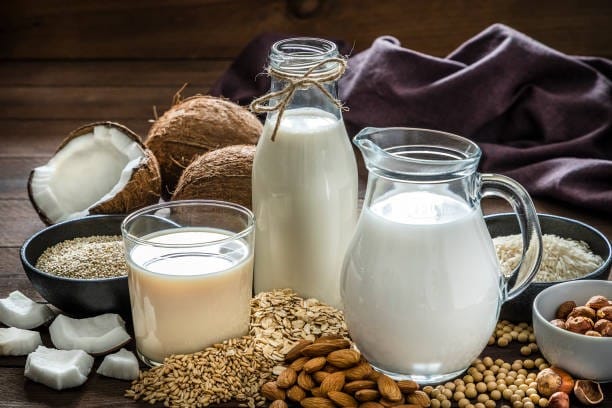
There are several environment-friendly companies that specialise in the production of plant-based milk, making it easily available in the markets. The methods adopted in the preparation of these milk alternatives involve replenishing, restoring, and reconnecting. These producers take several factors into consideration like nutrition, health, the way food is produced, its impact on our planet, and more.
But is it really worth the hype? Can we actually use milk alternatives or plant-based milk and derive health benefits?
Read on to know!
What is plant-based milk?
Starting with the preliminary questions, we shall delve deeper into the benefits and so on. Before we proceed with understanding the benefits of plant-based milk, let’s get acquainted with what exactly is plant-based milk.
For aeons, cow milk has been considered a crucial form of diet to provide people with necessary nutrients and maintain good health. One glass of milk will strengthen you and build your immunity is a belief we have been passing on from one generation to the next. Today, however, a shift in psychology can be observed. The impact of dairy production on the environment has led to the adoption of plant-based products worldwide.
Any milk which is obtained from plants instead of dairy animals is considered plant-based. Since it is obtained from plants, it is lactose-free and low in fats.
What are a few examples of plant-based milk?
Now that we have a good understanding of plant-based milk, let us look at some prominent examples of the same.
1] Bamnut milk
The Bamnut milk is derived from the Bambara groundnuts sourced from Ghana and Nigeria. It is loaded with calcium, and Vitamins B12 and D2 and is devoid of additives, making it highly nutritious. This plant-based milk is unique since the Barbara groundnuts have the ability to grow on arid land with minimal water, making it highly sustainable. Bamnut milk has foaming and frothing properties in addition to its delicious and rejuvenating taste!
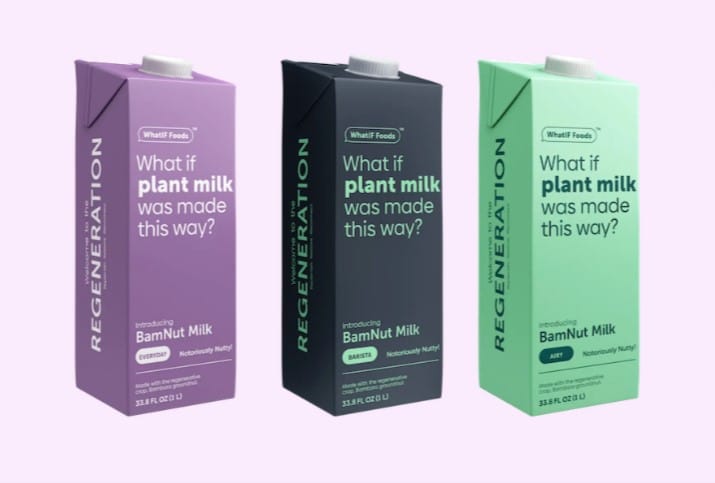
2] Soy milk
This is the most popular form of microbial alternative consumed worldwide. It is high in protein, low in saturated fats, and free of cholesterol. It can be used in cooking or baking; since it has a very similar consistency to dairy milk.
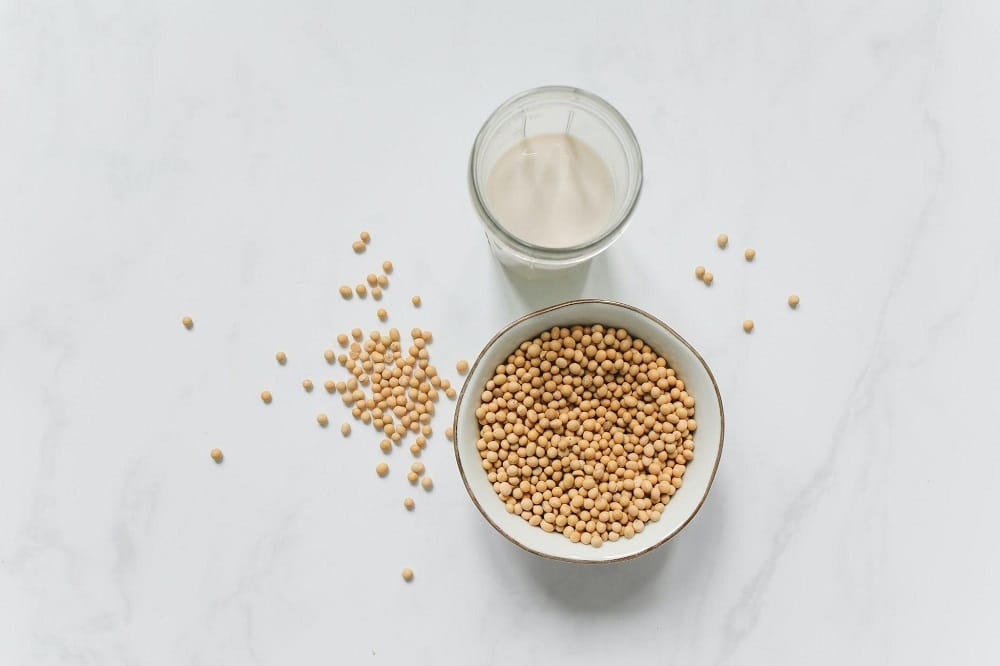
3] Almond and cashew milk
Almond milk and cashew milk; traditionally considered the milk of the rich, have now reached several homes. Both almond and cashew milk are loaded with vitamin E and are low in calories. However, they also have minimal protein and fibre, therefore, you need to include foods in your diet that are rich sources of these.
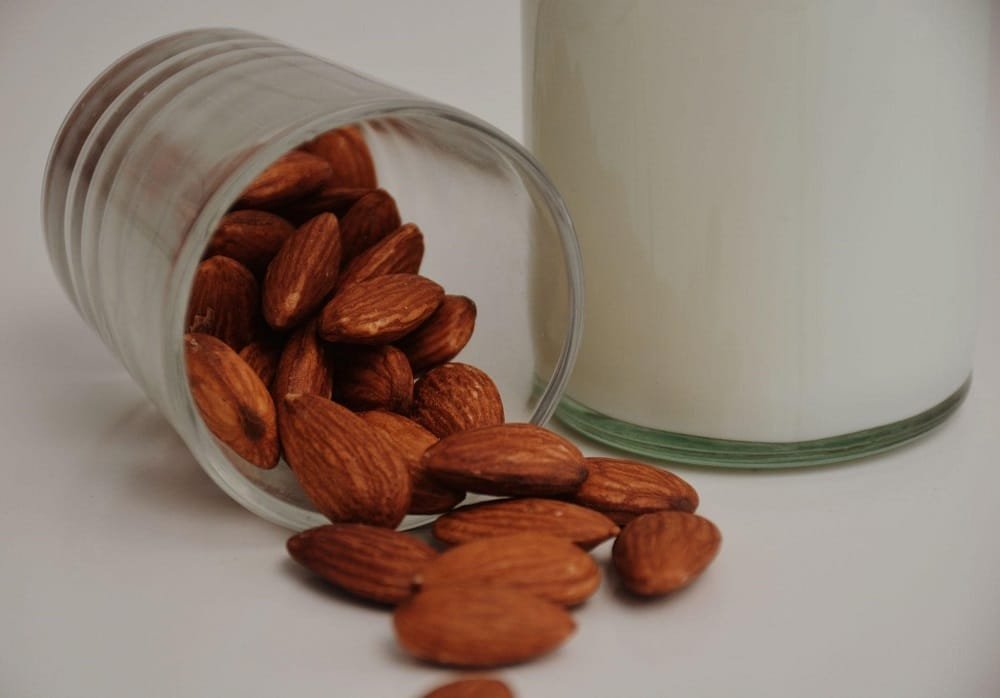
4] Coconut milk
Coconut milk has a distinct flavour that makes it a crowd-pleaser. It is usually used in the preparation of curries and soups. It is creamy and high in fat.
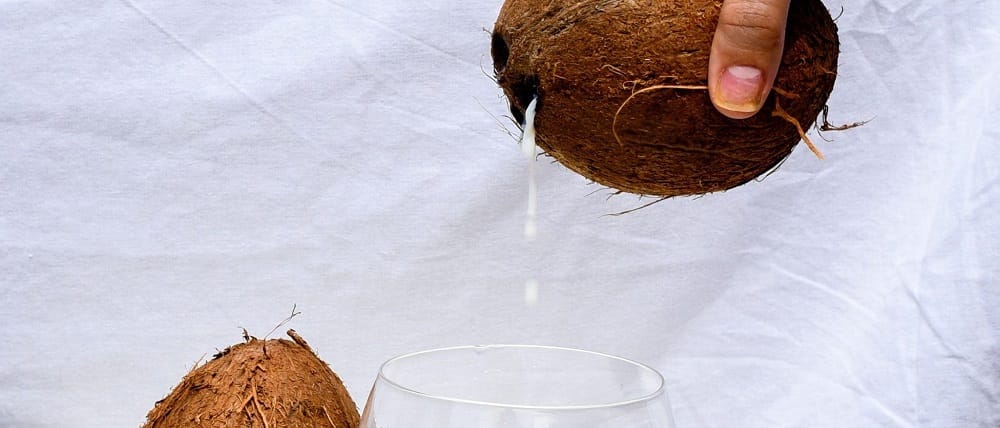
5] Rice milk
Rice milk is a very good option for people who are allergic to nuts, soy or lactose. It is sweet despite having less sugar additives and is fortified with other nutrients. It can however be high in carbohydrates and calories.
A few other kinds include raw milk, oat milk, hemp milk, and so on.
What are the benefits of consuming plant-based milk?
Why should one shift to consuming plant-based milk? Here are a few benefits that plant-based milk offers-
1] It is a rich source of vitamins and minerals.
2] Most milk alternatives are low in fat since they are obtained from plants and not animals. There are however exceptions like coconut milk.
3] They do not contain cholesterol. Just like fats, milk obtained from plants is low in cholesterol, which reduces the chances of many chronic illnesses.
4] Mono and polyunsaturated fats are combined in a favourable quantity in plant-based milk.
5] Good for people with slow digestive systems and digestive problems.
What milk option works the best for you?
With a wide variety of milk alternatives readily available in the market today, you might find yourself in a dilemma as to which milk should you go for. To answer this, contemplate your needs. For instance, if you want to use milk in your coffee, almond milk or Bamnut milk must be your choice. When it comes to baking you can use substitutes like soya milk or oat milk. Consider your requirements before you stick to one particular alternative. You can always keep trying other alternatives as per your needs.
Conclusion
When it comes to nutritional comparison, there is fierce competition between cow milk and plant-based milk. Each dairy alternative comes with its own benefits. You can always research and educate yourself so you end up choosing the perfect milk that suits you!

